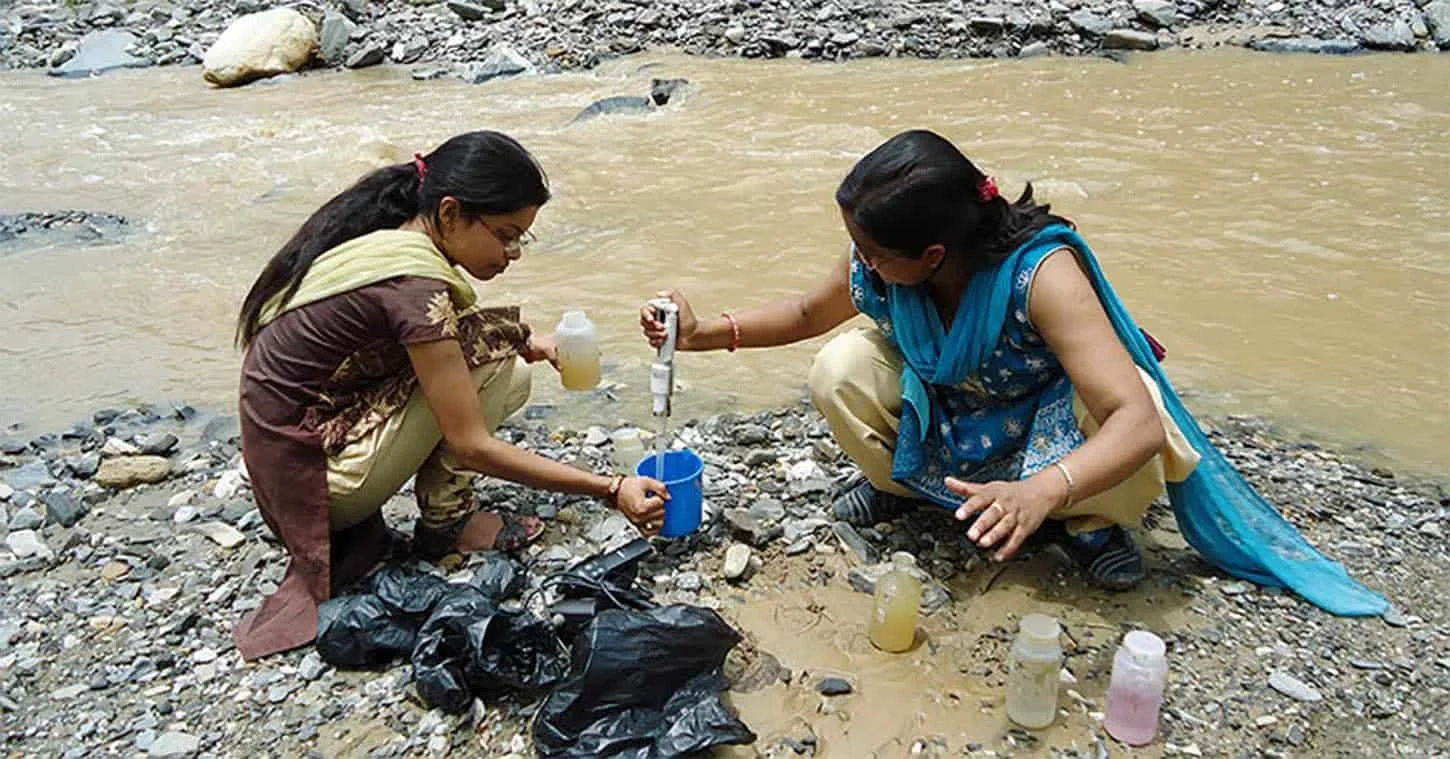Sustainability Science Hub: Using data to drive action on the UN SDGs
January 6, 2022
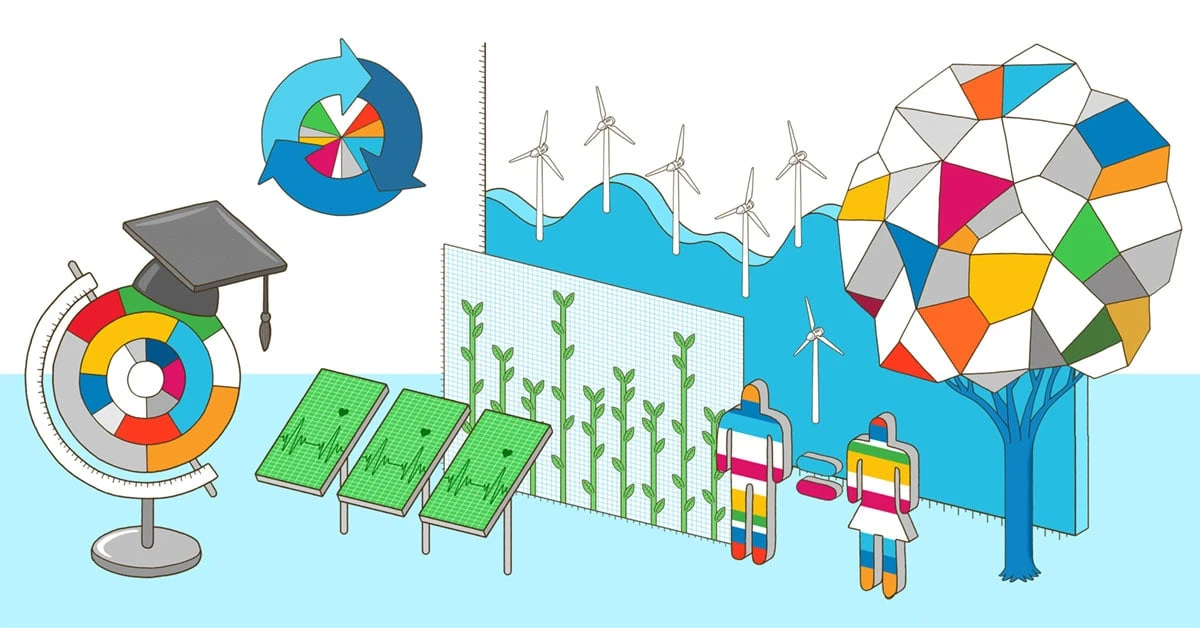
Free access to analytical reports, data sets, tools and other resources for sustainable development
What gets measured gets done, and progress in sustainability science is no different. Data has the power to advance the UN Sustainable Development Goals (SDGs) opens in new tab/window, and with an ambitious 2030 target, there are just eight years left to accelerate action and drive change.
But what kind of data? And does it signify real impact? How can we develop and leverage research and data to make a real difference?
By combining our unique insights in content, data and analytics with the networks and expertise of the research community, we can work together to develop tools to achieve significant progress.
There were an estimated 4.1 million scholarly papers related to the SDGs published in 2015-19 alone, meaning researchers and institutions are presented with a massive amount of data that is growing exponentially. To help them navigate this sea of information, we have produced analytics to better understand sustainability science, tracked the extent to which gender factors into SDG research, examined scholarly impact and collaboration opens in new tab/window — and made datasets available opens in new tab/window for everyone to use. As a company, we are proud signatories of the Climate Pledge, meaning we are accountable to achieve net zero carbon across all emissions by no later than 2040. to the rapid reduction of greenhouse gas emissions, aiming to achieve net zero emissions before 2050.
On our Sustainability Science Hub you can explore how data can produce critical insights into climate, sustainability science, gender, medicine and more; find tools to help decision-makers make evidence-based interventions; and discover resources to fuel innovation that is fundamental to achieving a sustainable and equitable future.
Analytical reports
Pathways to Net Zero: The Impact of Clean Energy Research
Released in October 2021 Pathways to Net Zero: The Impact of Clean Energy Research opens in new tab/window is based on a study analyzing more than 1.6 million papers from Elsevier’s Scopus opens in new tab/window database, combining data with content and subject-matter expertise to gain unique insights into how research can accelerate efforts to mitigate climate change. It’s designed to:
Provide descriptive insights into dimensions of research collaboration and knowledge transfer of particular relevance to net zero innovation ahead
Serve as an opening to discussions around net zero research and innovation.
Act as a springboard for debate on research funding and collaboration, technological choices and policy setting.

Sustainability Science in a Global Landscape
As the first of a series of activities that aim to provide valuable insights into the global research landscape surrounding the United Nations Sustainable Development Goals, this report, conducted by Elsevier in collaboration with SciDev.Net opens in new tab/window, contributes to the understanding of sustainability science as a research field and the dialogue between science and society in sustainable development.
In this relatively young field, this study establishes a baseline, both in the definition and the understanding of sustainability science, from which we may follow its progression and trajectory. Six key themes that encompass the 17 United Nations Sustainability Development Goals are examined in the report: Dignity, People, Prosperity, Planet, Justice and Partnership.
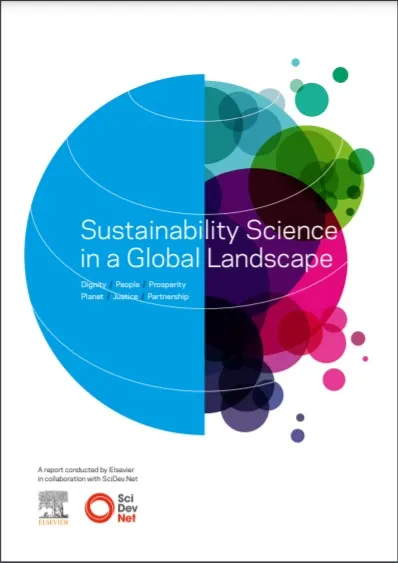
Mapping research to advance the SDGs
Elsevier's report on the progress of sustainability science comes five years after the UN adopted its Sustainable Development Goals opens in new tab/window (SDGs), setting an ambitious 2030 target to achieve a sustainable and equitable future for our planet. 2020 marks the start of the “Decade of Action” we have left to achieve them.
To this end, the report – The Power of Data to Advance the SDGs – offers unique insights and initiatives, many developed together with partners, to map the state of research within each SDG area.
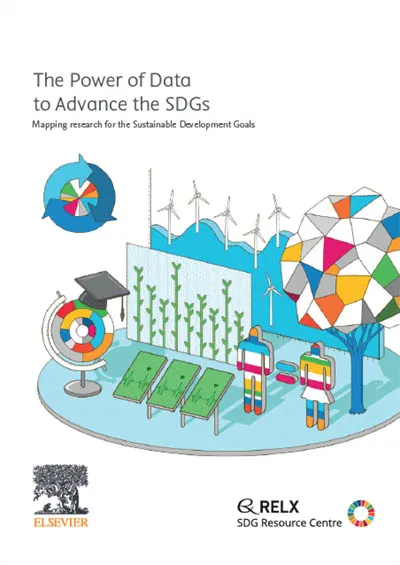
Elsevier's first sustainability science report
In September 2015, on the eve before the UN ratified the 17 SDGs, Elsevier and SciDev.Net released the analysis they collaborated on. Sustainability Science in a Global Landscape provided an overview of the landscape of sustainability science as a research field with a critical eye as to whether enough was being done in the field given the current global challenges.
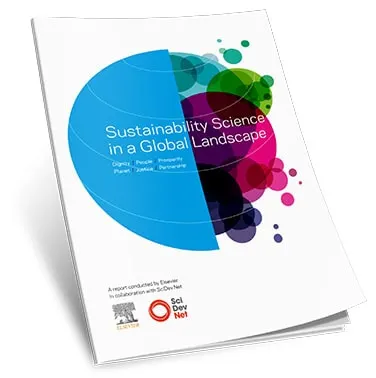
News
Open access publishing is indispensable, says award-winning hydrology researcher Milly Sell | May 25, 2022

Research insight
Earth Day insights from top-downloaded SSRN climate researchers David Tucker | April 21, 2022
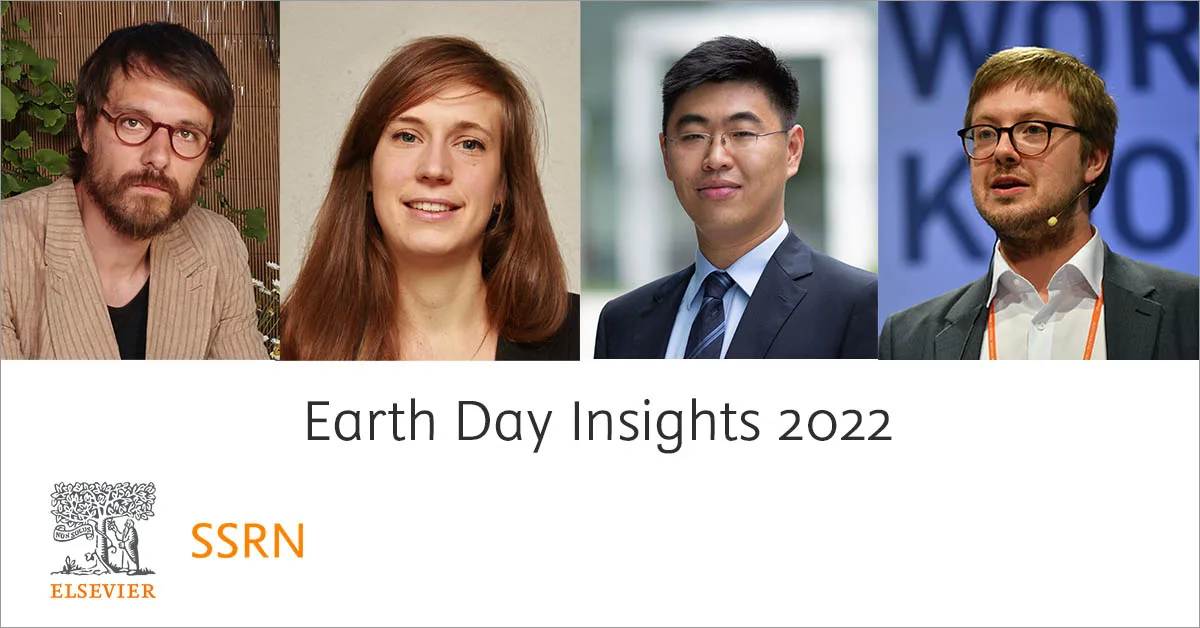
Practical guide
The role of carbon storage in achieving net-zero targets Gregory Mirabella | April 8, 2022
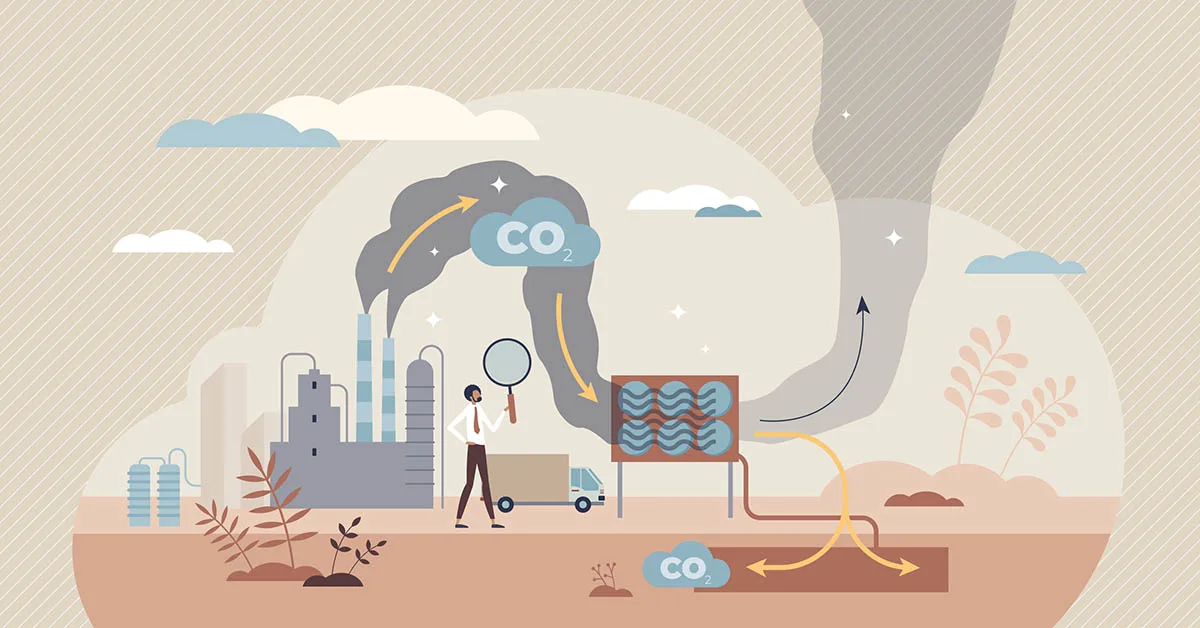
Help identify research that advances the SDGs
Elsevier’s data science teams have worked with experts to create a Scopus search query opens in new tab/window for each SDG. With this SDG matching tool opens in new tab/window, you too can play a part in helping to identify publications relevant to each SDG.
Full details of the methodology and results for each SDG search query are freely available on Mendeley opens in new tab/window, and the research publications retrieved by these queries can be analyzed in SciVal.
Researchers and institutions can also use this tool in SciVal opens in new tab/window to help researchers and institutions track and demonstrate progress towards the targets of the SDGs.
Interactive information and education platforms
Video modules: Sustainable development goals for researchers
In these Researcher Academy modules opens in new tab/window, experts share how to make your research gender balanced, how to protect the environment while continuing your work, and other ways to help achieve the UN's Sustainable Development Goals through your work.
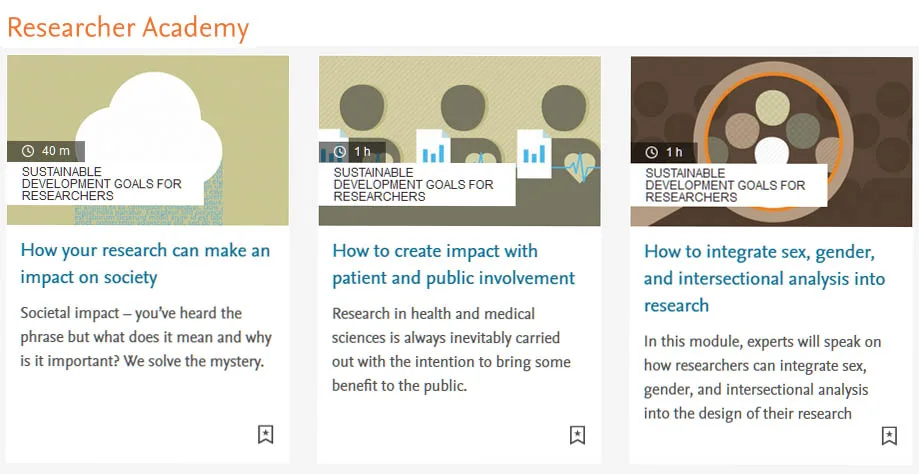
The Lancet Countdown : Tracking progress on health and climate change
The Lancet Countdown works to ensure that health is at the centre of how governments understand and respond to climate change. The Lancet's work ranges from ensuring policymakers have access to high-quality evidence-based guidance, through to providing the health profession with the tools they need to improve public health.
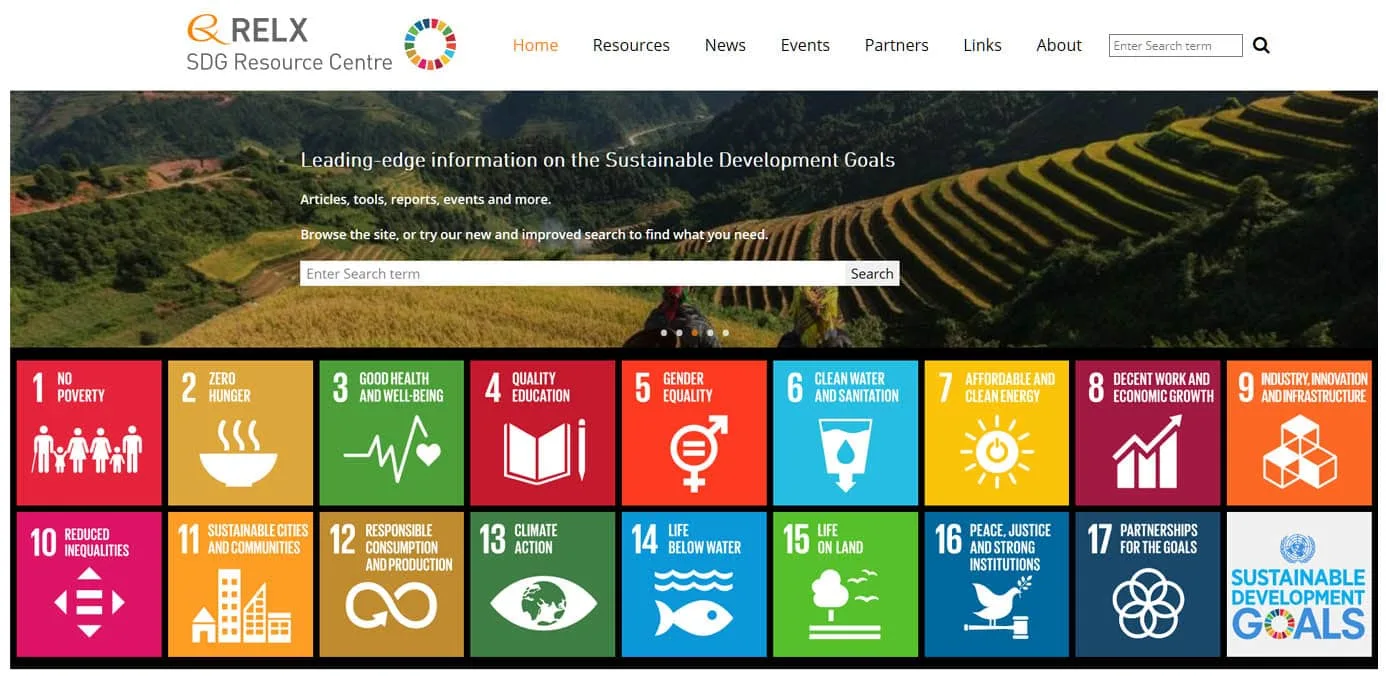
The RELX SDG Resource Centre features curated content, a news tracker, events and more.
Stories and resources related to the SDGs
SDG 3: Good Health and Well-being
The UN's third goal is to "ensure healthy lives and promote well-being for all at all ages."

Novel Coronavirus Information Center The Elsevier Community | January 27, 2020

Researcher stories
Using knowledge mining to fast-track innovative treatments for disease Ian Evans | June 18, 2020

Q&A: Amref leader on why universal health coverage is crucial for Africa Domiziana Francescon | March 4, 2019
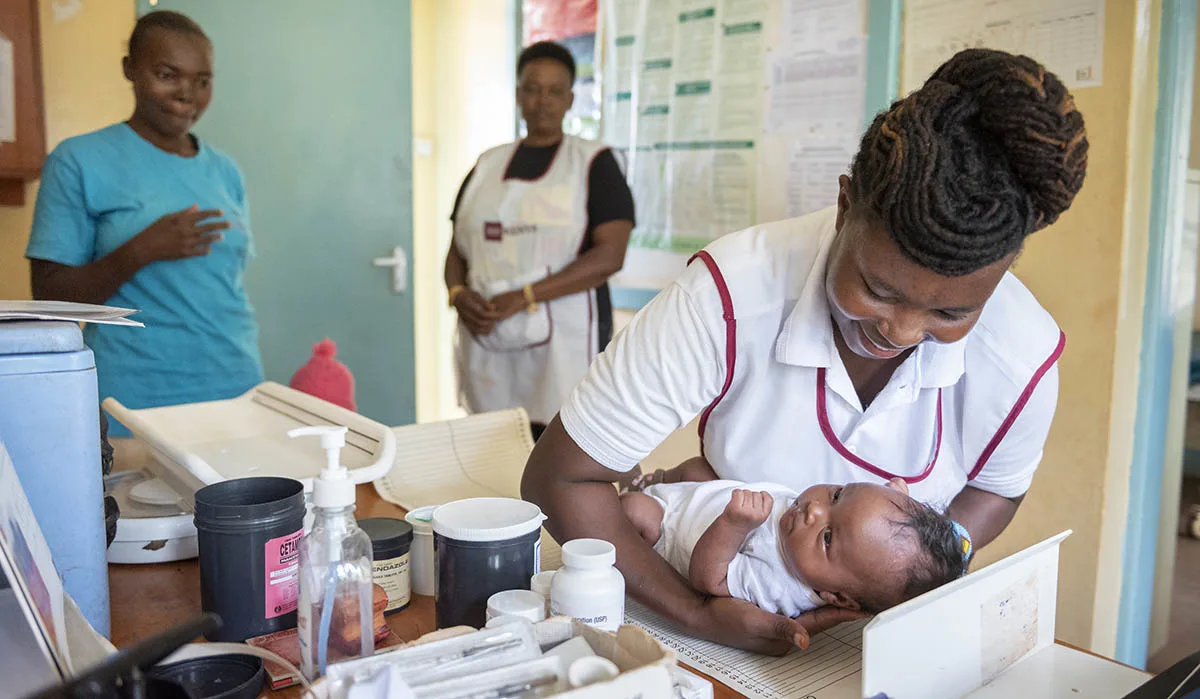
SDG 4: Quality Education
The UN's fourth goal is to "ensure inclusive and equitable quality education and promote lifelong learning opportunities for all."

SDG 5: Gender Equality
The UN's fifth goal is to "achieve gender equality and empower all women and girls."

Research insight
Elsevier's reports on gender in research March 4, 2020 | 20 mins
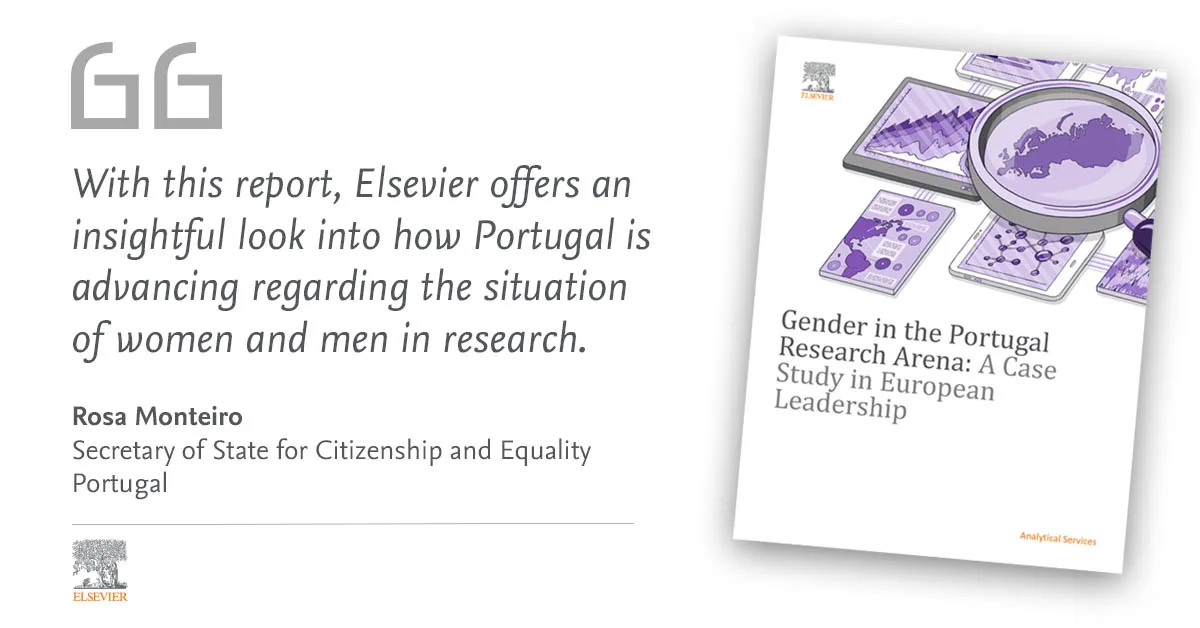
Interview
Applying “gender lens” can help us achieve better health and disaster responses: Gender Summit founder Domiziana Francescon and Yuhri Ishizaki | August 4, 2020
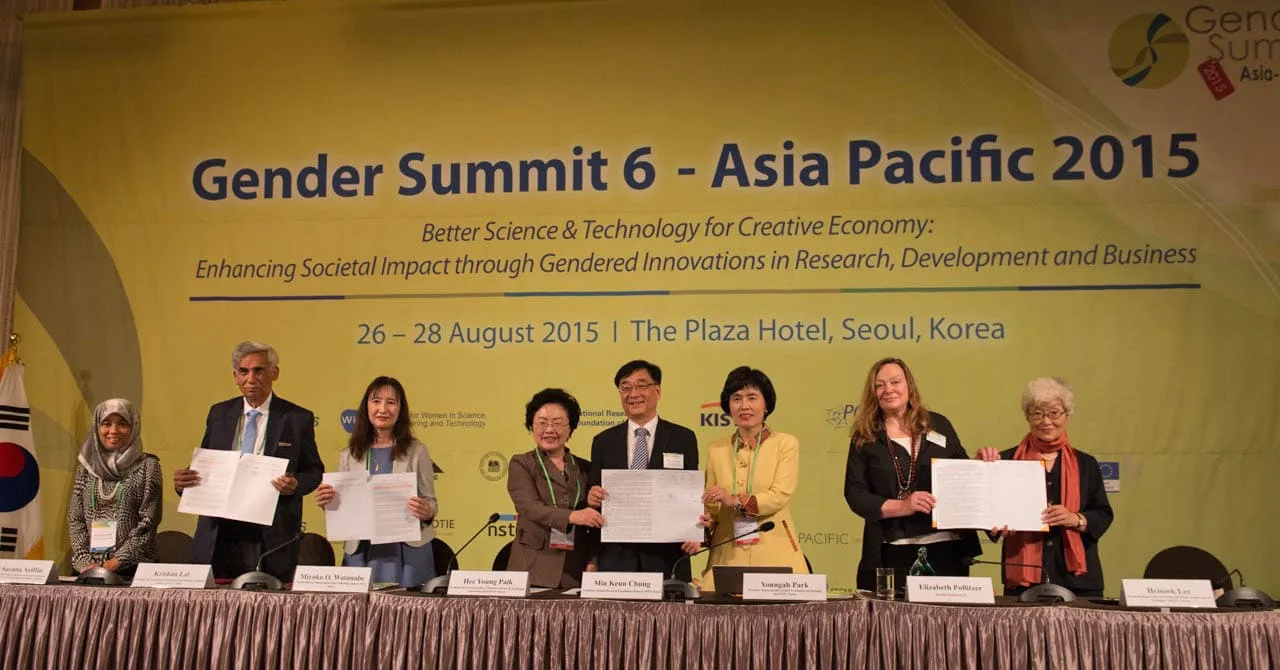
Research insight
Can data change the way we think about gender and research? Karin Hilton | April 16, 2020
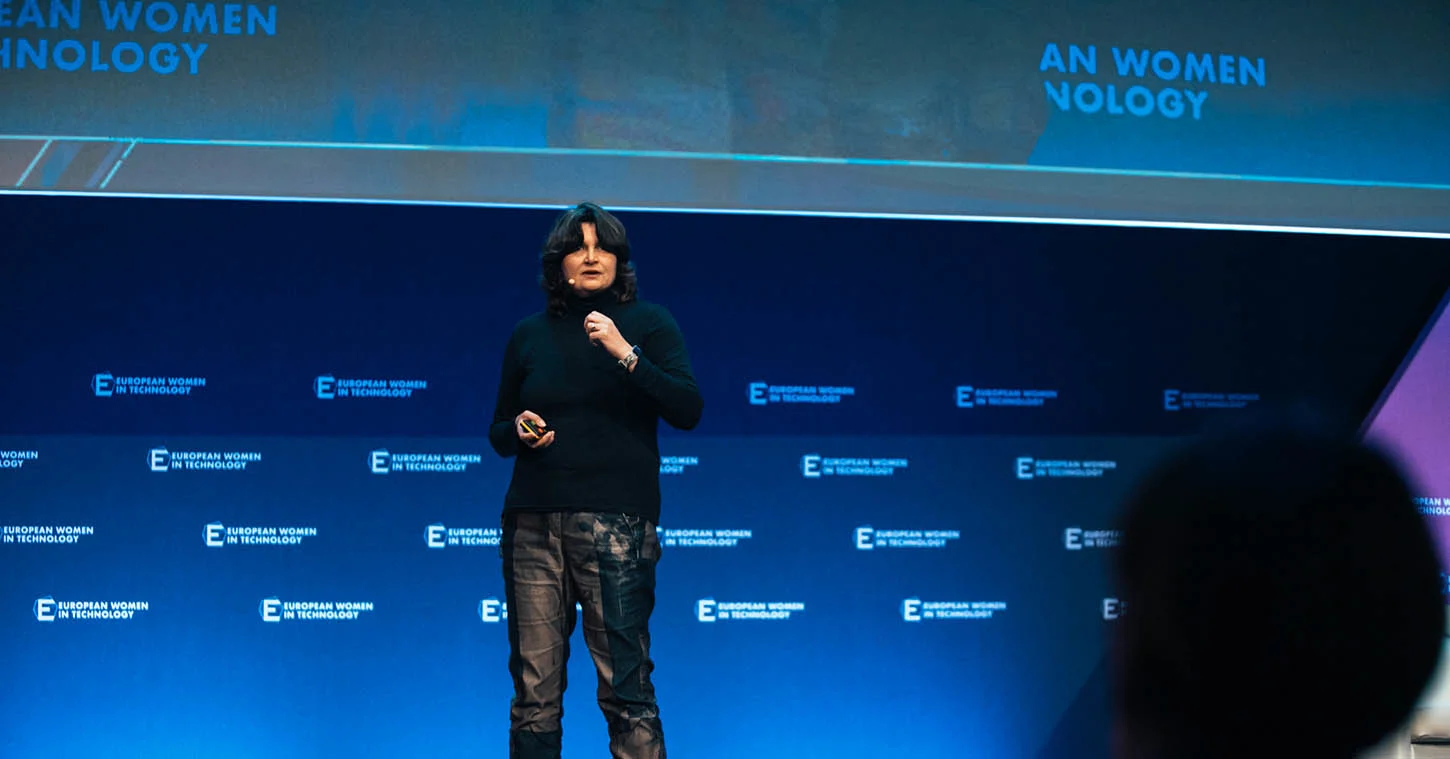
SDG 10: Reduced Inequalities
The UN's 10th goal is to "reduce inequality within and among countries."

News
MOOCs help researchers and librarians in developing countries access the latest scientific information Domiziana Francescon | July 15, 2020
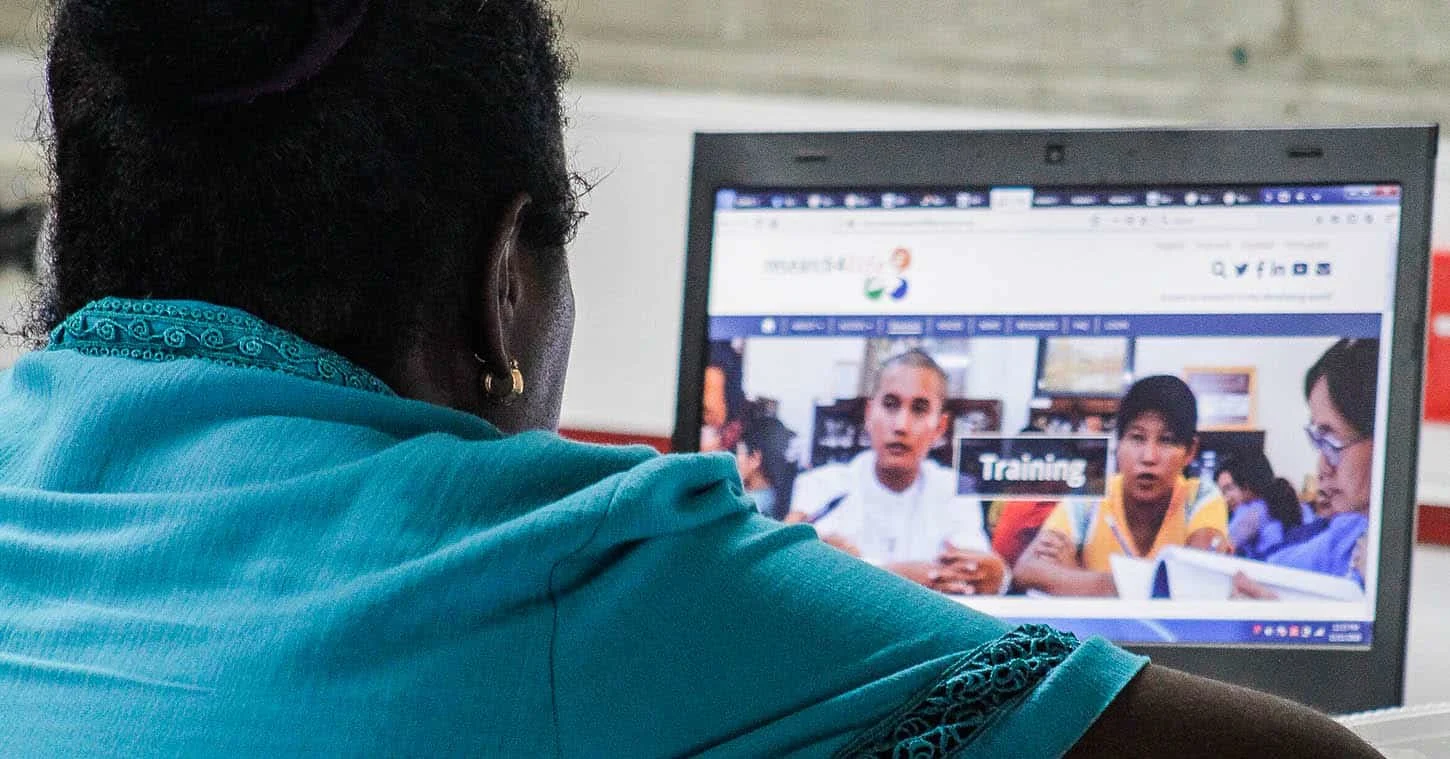
Research insight
Working toward racial and social equity: research and commentary The Elsevier Community | July 23, 2020

Researcher stories
A Harvard PhD candidate is helping women of color succeed in academia Ian Evans | May 7, 2022

SDG 13: Climate Action
The UN's 13th goal is to "Take urgent action to combat climate change and its impacts."
Climate change showcase
Explore a selection of Elsevier research opens in new tab/windowrelating to climate change and global warming, explained in plain language by professional science writers
Climate Action Hub
SSRN’s Climate Action hub opens in new tab/window highlights curated, early-stage research related to Earth’s climate changes due to global warming and the subsequent large-scale shifts in weather patterns, across many disciplines that may inform the ongoing conversation about climate change and global warming.
We are also signatories to the SDG Publishers Compact opens in new tab/window and have committed tobe Net Zero by 2040 at the latest. You can find out more about our commitments here.

Researcher stories
Organic chemist challenges the system to find a cleaner way of running reactions Ian Evans | May 28, 2020
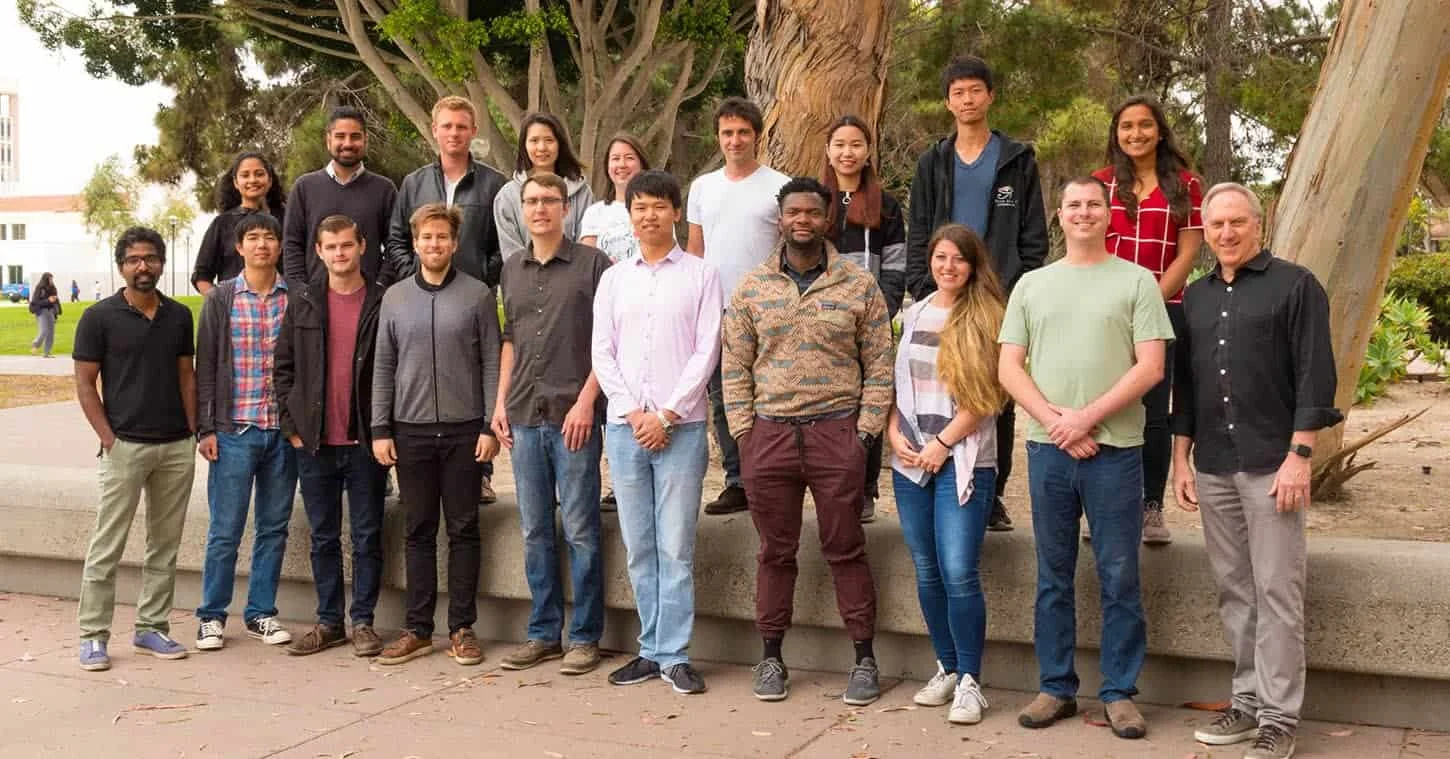
Researcher stories
Butterfly effect: Meet the team protecting biodiversity in India Rob van Daalen | April 21, 2020

A researcher’s quest to clean Nepal’s water leads to an unexpected journey Alison Bert, DMA | January 15, 2020 | 7 mins
